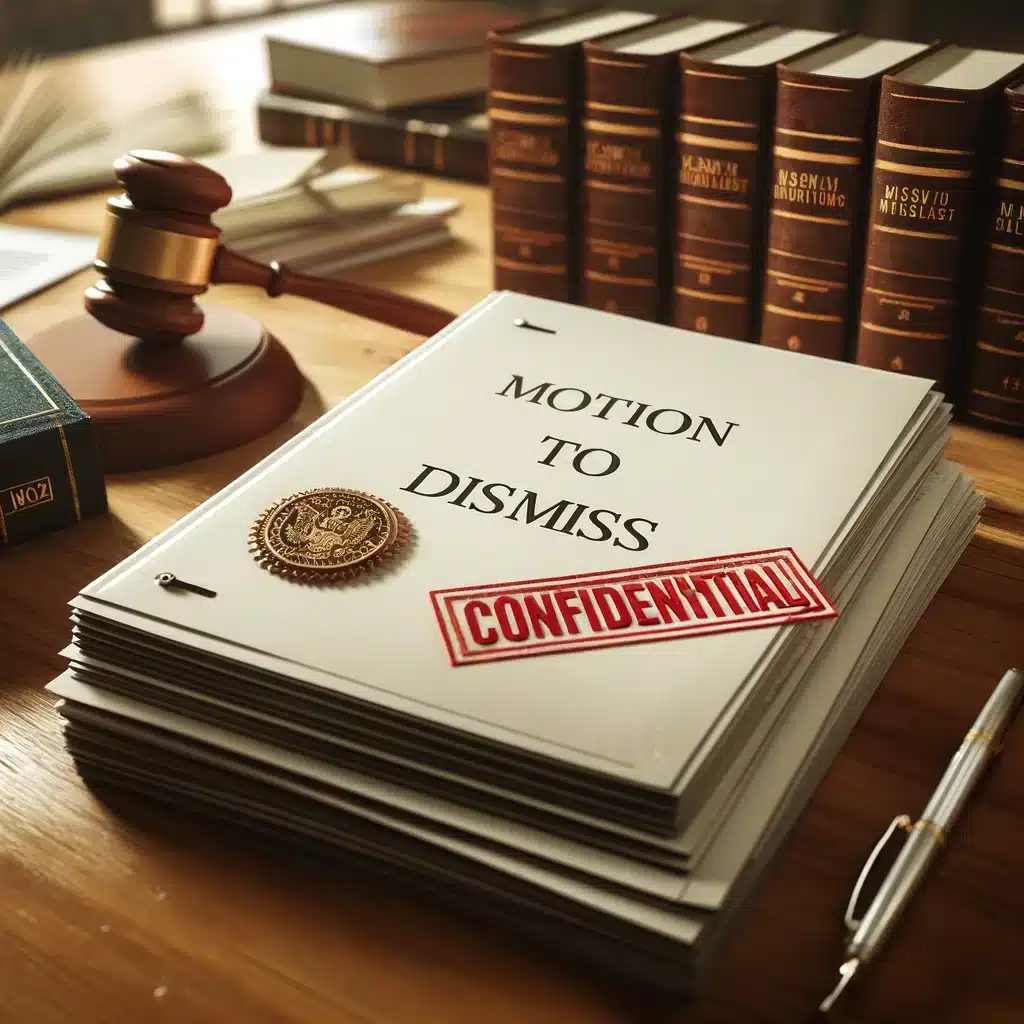
In legal terms, a dismissal is the termination of a case or claim without a final judgment on the merits. Dismissals can occur for various reasons, such as procedural issues, lack of evidence, or the plaintiff’s decision to withdraw the case. When a case is dismissed, it may end the lawsuit entirely or allow for it to be refiled under certain circumstances. In personal injury cases, a dismissal can significantly impact a plaintiff’s ability to seek compensation. At 770GoodLaw, we help clients understand their options if their case faces dismissal, exploring strategies for refiling or addressing procedural issues to protect their rights.
Types of Dismissals
Dismissals can vary based on the circumstances and may have different legal implications. Common types of dismissals include:
- Dismissal With Prejudice: This type of dismissal permanently closes the case, preventing the plaintiff from refiling the claim in the future. It typically occurs if the court finds that the case lacks legal merit or if the plaintiff fails to comply with court orders.
- Dismissal Without Prejudice: A dismissal without prejudice allows the plaintiff to refile the case, often due to procedural errors or lack of necessary evidence. The plaintiff may address these issues and attempt to bring the case back to court.
- Voluntary Dismissal: The plaintiff may choose to voluntarily dismiss the case, either with or without prejudice. Voluntary dismissals may occur if the parties reach a settlement or if the plaintiff decides not to pursue the claim further.
- Involuntary Dismissal: The court can order an involuntary dismissal without the plaintiff’s consent, usually due to failure to prosecute, lack of jurisdiction, or non-compliance with procedural rules.
Common Reasons for Dismissal in Personal Injury Cases
Dismissals in personal injury cases can result from various factors, many of which relate to procedural issues or legal grounds. Common reasons for dismissal include:
-
Lack of Evidence: If the plaintiff fails to provide sufficient evidence to support their claim, the case may be dismissed due to lack of proof.
-
Failure to Meet Filing Deadlines: Missing critical deadlines, such as the statute of limitations, may result in dismissal, as the case is no longer eligible for consideration.
-
Non-Compliance with Court Orders: Failure to comply with court procedures, document requests, or other court orders can lead to involuntary dismissal.
-
Jurisdictional Issues: If the court lacks jurisdiction over the case, it may dismiss the claim until it can be brought before the correct court.
-
Settlement Agreement: If both parties reach an agreement outside of court, the plaintiff may voluntarily dismiss the case as part of the settlement.
Implications of Dismissal for Plaintiffs
Dismissals can have significant consequences for plaintiffs, particularly if the case is dismissed with prejudice. Important implications include:
- Loss of Right to Refile: If a case is dismissed with prejudice, the plaintiff loses the ability to refile, effectively ending their pursuit of compensation for that claim.
- Opportunity to Correct Issues: Dismissals without prejudice give plaintiffs a chance to address procedural or evidentiary issues, potentially allowing them to refile with a stronger case.
- Financial Impact: A dismissal, especially if the case cannot be refiled, may leave plaintiffs without compensation for medical expenses, lost wages, and other damages.
- Potential for Settlement: In some cases, a dismissal may prompt the parties to negotiate a settlement outside of court, allowing the plaintiff to receive compensation without proceeding through litigation.
Steps to Take After a Case Dismissal
If your personal injury case is dismissed, taking prompt action can help you understand your options and potentially preserve your right to seek compensation. Important steps include:
- Consult with Your Attorney: Review the reason for dismissal with your attorney to understand the implications and determine if the case can be refiled or appealed.
- Address Procedural Issues: If the dismissal was due to procedural errors, work with your attorney to correct these issues and prepare for a potential refiling.
- Consider Settlement Options: If dismissal occurs during negotiations, explore settlement options to secure compensation outside of court.
- Evaluate Refiling Options: For dismissals without prejudice, determine if additional evidence or documentation could strengthen the case for a successful refiling.
- File an Appeal if Necessary: In some cases, plaintiffs may appeal a dismissal, especially if it was based on legal grounds that could be contested in a higher court.
Preventing Dismissal in Personal Injury Cases
Proactive steps can help reduce the risk of dismissal, ensuring that the case proceeds through the court system and has a better chance of success. Strategies to prevent dismissal include:
-
Timely Filing: Ensure that the lawsuit is filed within the statute of limitations and that all deadlines are met throughout the process.
-
Comprehensive Documentation: Collect all necessary evidence and documentation before filing, including medical records, accident reports, and witness statements.
-
Adherence to Court Procedures: Follow all court rules and orders to avoid procedural dismissals, including document submissions, deadlines, and appearances.
-
Open Communication with Legal Counsel: Stay in contact with your attorney, promptly addressing any concerns or updates to keep the case on track.
How 770GoodLaw Assists Clients Facing Dismissal
At 770GoodLaw, we provide comprehensive support for clients whose cases face dismissal, working to overcome procedural challenges and keep the case moving forward. Our approach includes:
- Identifying Grounds for Dismissal: We analyze the reason for dismissal and provide clients with a clear explanation of their options, including refiling, appealing, or pursuing alternative resolutions.
- Addressing Procedural Issues: Our team works to resolve procedural problems, such as document errors or missed deadlines, to strengthen the case for a potential refiling.
- Building a Stronger Case: For dismissals without prejudice, we gather additional evidence and refine the legal strategy to enhance the case’s chances of success if refiled.
- Exploring Settlement Alternatives: If dismissal occurs during negotiations, we pursue alternative settlement options to secure compensation for our clients.
- Representing Clients in Appeals: For clients seeking to appeal a dismissal, we prepare a compelling argument for the appellate court, working to reverse the dismissal and resume the case.
Importance of Legal Representation When Facing Dismissal
Navigating a case dismissal requires an understanding of legal procedures, court rules, and options for refiling or appealing. Skilled legal representation ensures that plaintiffs have the best chance to overcome dismissal and secure the compensation they need. At 770GoodLaw, we provide dedicated support for clients, guiding them through each stage of the dismissal process and pursuing all available options to achieve a positive outcome.
Why Choose 770GoodLaw for Cases Involving Dismissal
Our commitment to Relentless Reliability and Sincetegrity drives us to provide comprehensive, client-centered support in personal injury cases, even when facing dismissal. At 770GoodLaw, we work tirelessly to protect our clients’ rights, ensure procedural compliance, and secure the best possible outcome in every case.






